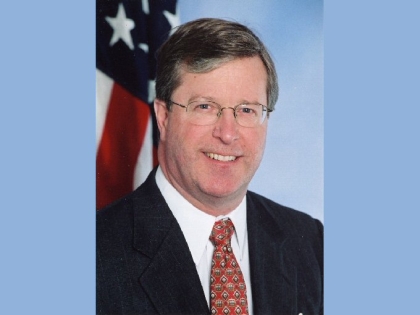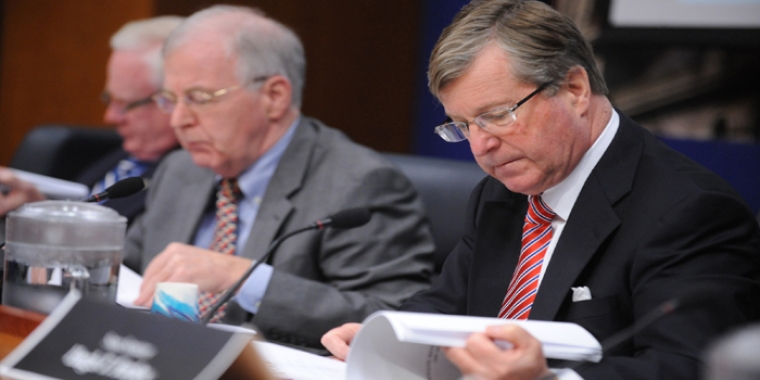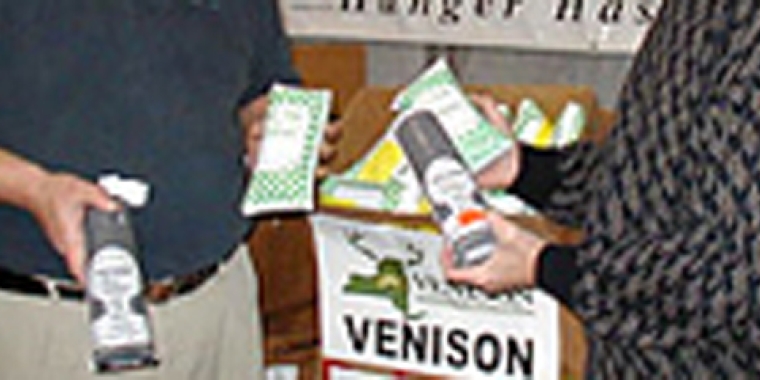
Winner Renews Call for Medicaid Savings in 2010-2011 State Budget

Albany, N.Y., April 26 – With Governor David Paterson and state leaders showing no signs of moving closer to a final agreement on the 2010-2011 state budget, State Senator George Winner (R-C-I) renewed his call for this year’s state budget to immediately reinstate locally administered eligibility tests for Medicaid applicants and to enact additional oversight mechanisms that many local and statewide officials believe can begin to provide billions of dollars in cost savings in the state’s most expensive program.
Winner also remained critical of state leaders for failing to adhere to a 2007 budget reform law that requires both houses of the Legislature to convene joint, bipartisan public budget meetings to settle differences. Those meetings have not taken place as the state enters its fourth week without a new budget.
“The public should be informed every step of the way, but all we’re hearing out of Albany on the budget is silence,” Winner said. “That’s never a good sign for taxpayers.”
One thing Winner and his Senate Republican colleagues have not been silent about is the need to combat abuse, fraud, and overutilization in New York’s $52-billion system of Medicaid. Earlier this year Winner and the eight members of the Senate Republican Task Force on Medicaid Fraud released a report and a series of recommendations for improving the state’s Medicaid oversight efforts.
Task force members believe that their initial recommendations point to annual savings of up to $500 million and should be one of the cornerstones of this year’s final budget.
“Medicaid costs a billion dollars a week in New York. It’s gobbling up taxpayer dollars and local resources in alarming and unsustainable ways,” Winner said. “The first thing that needs to be done in this year’s state budget is to reinstate the eligibility tests that were eliminated last year, a move that I strongly opposed. Then we should immediately enact a more aggressive system of Medicaid oversight and accountability.”
Despite the fact that they are on the front lines of implementing the Medicaid program, county officials have testified that the state inhibits their efforts to stop fraud at the local level. They pointed to the 2009-10 state budget enacted by Paterson and the Democratic leaders of the Legislature last April as an example. Last year’s budget eliminated the eligibility requirements for face-to-face interviews, finger-imaging and asset tests for applicants for Medicaid that are conducted by counties. The interviews were intended to ensure accountability in the system.
Winner said that the task force is recommending the reinstatement of the asset-and-resource test for Medicaid eligibility determinations and to include the local Department of Social Services Fraud Unit as part of the application process. Other recommendations being pushed by Winner will empower localities to boost their own fraud-detection efforts, and more aggressively target waste and overutilization of services by:
-- authorizing the referral of all fraud cases to local district attorneys in order to reduce the timeframe for prosecuting cases while permitting counties to keep a portion of all fraud recoveries;
-- allowing counties to access the State Medicaid Data warehouse to improve local efforts to uncover billing patterns that point to possible fraud or overutilization of services; and
-- creating an automated system to alert county officials when residents become incarcerated and, consequently, ineligible for Medicaid benefits.
-30-



